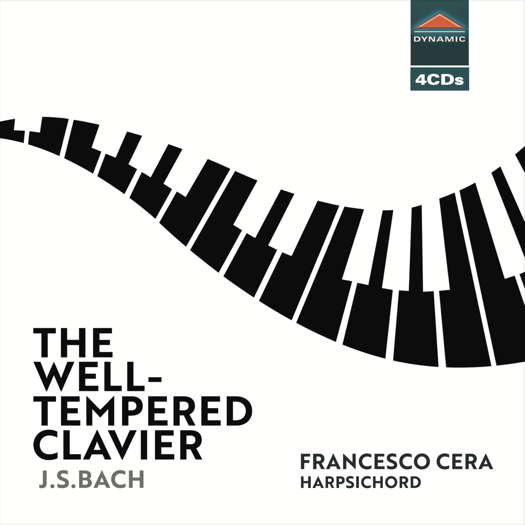 FEEDBACK: She said WHAT? Read what people think about our Classical Music Daily features, and have your say!
FEEDBACK: She said WHAT? Read what people think about our Classical Music Daily features, and have your say!
 VIDEO PODCAST: Slava Ukraini! - recorded on the day Europe woke up to the news that Vladimir Putin's Russian forces had invaded Ukraine. Also features Caitríona O'Leary and Eric Fraad discussing their new film Island of Saints, and pays tribute to Joseph Horovitz, Malcolm Troup and Maria Nockin.
VIDEO PODCAST: Slava Ukraini! - recorded on the day Europe woke up to the news that Vladimir Putin's Russian forces had invaded Ukraine. Also features Caitríona O'Leary and Eric Fraad discussing their new film Island of Saints, and pays tribute to Joseph Horovitz, Malcolm Troup and Maria Nockin.
- Württembergische Philharmonie Reutlingen
- Yoshimatsu: Tapiola Visions
- Ars Nova Ensemble
- Schubert: Wanderer Fantasy
- Martin Turnovský
- Helix Ensemble
- Jamie Manton
- Aibo

Engaging, Interesting and Thoughtful
ENDRE ANARU is inspired by Francesco Cera's performance of The Well-Tempered Clavier: Part 1, Book 1
'He gives voice to the voices and instead of just a dry plain reading we hear an enlivened elocution. It is as if he recited the music for us.'
In writing a review I feel one thing the reviewer needs to beware of is sounding like a teacher. How sad it is to listen to music only in such a way: correcting mistakes, sighing sadly over the immaturity of youth, belabouring the student for this and that perceived fault, listening to others with an unjustified sense of superiority. One young piano student left his teacher because the teacher never allowed him to play even a few bars in succession without interruption. Where is the music in that? But, at Youtube and elsewhere you can watch videos of musicians responding to performances (some of outstanding merit) with exactly this sort of interruption. This it is to listen like a teacher.
Musicians deserve better. Music deserves better. One should listen seeking artistic response.
Thus, I turn to The Well-Tempered Clavier performed on harpsichord by Francesco Cera (FC). He performs both books of this phenomenal collection that must stand like two Himalayan peaks. I use that metaphor to remind us that these pieces (as sets) are among the most amazing of artistic creations of all. We might forget that by long acquaintance. We do tend to become inured (implying bored) by that which we see often. Perhaps we have forgotten just how big these two sets are. To have performed them is itself a great achievement. It is like hearing someone has come back from climbing Mt Everest. Though many now do it as a bucket list activity, the achievement is still enormous.
Congratulations Maestro Cera!
When we hear an artist performing we forget that there are others. When you hear Laurence Olivier recite a sonnet you don't think of Judi Dench. And when you hear Judi Dench recite a sonnet, you don't think of Olivier. You are drawn into the acoustic philosophic, poetical realm created by that particular artist at the particular time. Let it be so and don't wallow in comparative texts which really only try to show the reviewer's knowledge base. Stay in the moment.
And in the moment these are engaging, interesting and thoughtful performances. They make one listen here and now.
When played as an ongoing set these works comprise a vast range - the mountain metaphor again. How to come to terms with them? I must take them in smaller chunks rather than listening to all in one go. Thus, I heard the first four which I believe Egon Petri referred to as 'Earth, Air, Wind and Fire', although I am reluctant to ascribe a specific term to the specific works. But, to listen to the whole set at one sitting is probably the ideal. Then one hears the twists and turns of mood, character and ideation. Here a beguiling trifle (with a big heart), there a profound lamentation, and so on. Give each piece the chance to speak but within the gigantic whole that is the set.
And speak they do in FC's interpretation. He gives voice to the voices and instead of just a dry plain reading we hear an enlivened elocution. It is as if he recited the music for us. And many different ways are possible, of course. Consider Mark Rylance's interpretation of Henry the 5th's St Crispin's speech which is utterly in contrast to the usual heaven-ascending-glorious-battle-praising-manner. One may or may not agree, but it is fascinating to hear. As well, here, listen for the C sharp minor prelude and Fugue (Book 1) and hear it recited and sung in such a beautiful way.
Some compositions that are normally played with fire and vehemence FC plays slowly and deliberately.
Listen — J S Bach: Prelude in F sharp minor
(The Well-Tempered Clavier Book 1)
(CDS7997.04 CD2 track 2, 0:02-0:41) ℗ 2023 Dynamic Srl :
Others that are usually slow he plays at the very slightest of a quicker tempo and something more is made out. These are all good things. Because what is not needed is a mechanical performance. We have machines for that. Humans do something else. I don't know if its my imagination, but it seems that the later preludes and fugues receive an overall more 'traditional' approach, that is one more of the twentieth century version of harpsichord playing. The earlier pieces in Volume 1 seem freer, more elocutionary.
Listen — J S Bach: Fugue in G major
(The Well-Tempered Clavier Book 1)
(CDS7997.04 CD2 track 3, 1:07-2:04) ℗ 2023 Dynamic Srl :
FC adds many rolled (arpeggiated) chords in his performance and this will strike some as very peculiar. Some will dislike it as they prefer a percussionist approach to the sounding of music. The twentieth century basically banned rolled chords not specifically marked by the composer.
Listen — J S Bach: Prelude in C sharp minor
(The Well-Tempered Clavier Book 1)
(CDS7997.04 CD1 track 4, 2:03-2:56) ℗ 2023 Dynamic Srl :
I am a great proponent of the rolling of chords, but it must be by reason. There are actually many reasons. Chords can be rolled for instrumental reasons, reasons of the hands, reasons of acoustics, reasons of temperament (to hide or reveal tuning matters), reasons of rhythmic activation, reasons of elocution, reasons of mood, or just a surge of the moment.
The first rule of rolled chords: Not all rolled chords are the same.
The result will be a difference of sounding for the elocution.
Harpsichordists would do well to listen to the two Couperin recordings of Paderewski for ideas on the variety of rolling chords. Sadly, Paderewski never recorded any works by Bach, though a credible witness vouched for their beauty.
An aside on tuning and temperament
'Well temperament' probably means a circulating unequal temperament that allows for slight variations in the intervals to create slight variations in the colouring of each of the keys without encountering a wolf interval. You can play all the keys, but each will have a slightly different character. What that character will be will depend and there was a huge variance in well temperaments — which are not all the same.
FC states he has created his own well-temperament (which would have been perfectly acceptable to eighteenth century composers, as they all did so sometimes with multiple variants or versions like Kirnberger). Notably, FC does not provide a schematic for his well temperament and I am loath - following the advice given me by a very great tuner and technician (whom I leave nameless) - to guess the nature of the temperament from a recording. He told me he would never judge, or even describe a temperament from a recording of a composition, but would only do so if allowed to perform tests on the instrument so tuned.
The decision as to what temperament to use in Bach is the subject of endless debate and FC has just bypassed it by using his own and not providing the schematic. Wise move. The result is that we must stay in the moment and hear how it sounds. I leave that to other listeners. Instead listen to this album and hear the beauty that FC has created. That's what's important.
Copyright © 8 November 2023 Endre Anaru,
Nanton, Alberta, Canada



